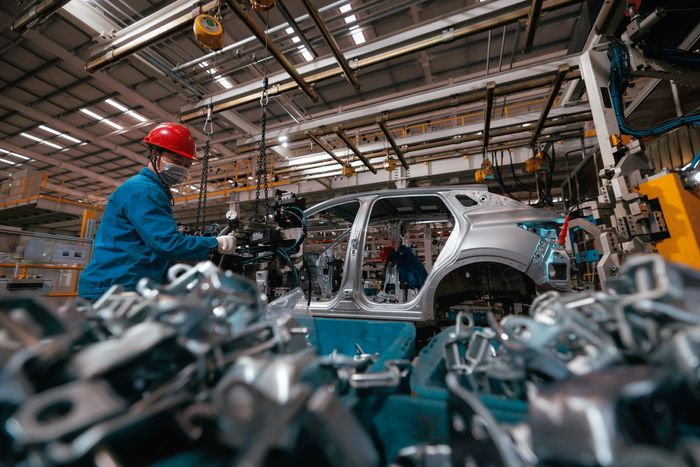China’s electric vehicle (EV) giant BYD inaugurated a new manufacturing plant in Thailand on Thursday, pressing forward with its global expansion despite a broader market slowdown and looming European Union tariffs on Chinese EVs. This development underscores BYD’s commitment to expanding its international footprint amidst a competitive and shifting landscape.
The new factory, located in Rayong, an industrial region southeast of Bangkok, is designed to produce up to 150,000 vehicles annually. This facility will initially focus on manufacturing fully electric vehicles, with plans to expand into plug-in hybrids—vehicles that combine traditional internal combustion engines with electric motors.
Wang Chuanfu, CEO of the Shenzhen-based company, emphasized the plant’s comprehensive production capabilities and its role in generating local employment. “BYD Thailand plant has an annual capacity of 150,000 vehicles, including the four major processes of vehicle and parts production, and will create about 10,000 jobs,” Wang stated at the opening ceremony.
Thailand, known for its extensive auto manufacturing sector, is actively transitioning towards EV production. BYD’s new facility aligns with Thailand’s strategic goals and reinforces its position as a key player in the evolving global auto market. The Rayong plant is expected to play a pivotal role in supporting Thailand’s shift from conventional vehicle manufacturing to more sustainable electric alternatives.
BYD, which surpassed Tesla in the fourth quarter of 2023 to become the world’s leading EV seller, has experienced a dynamic market environment. Although Tesla regained the top spot in the first quarter of this year, BYD remains optimistic about its global expansion. Last month, the company announced its plans to build a second factory in the European Union, demonstrating its resilience and ambition despite facing intense competition and market volatility.
In the past year, BYD achieved a record annual profit of 30 billion yuan ($4.1 billion). However, the company reported lower-than-expected revenue for the first quarter of 2024, reflecting the challenges in an increasingly crowded EV market. With 129 EV brands competing in China, only a fraction have secured significant market shares. BYD continues to navigate this complex landscape, leveraging its strengths to maintain its market position.
As BYD expands its global presence, it faces substantial challenges from international trade policies. The European Union is set to impose significant tariffs on Chinese EV manufacturers, including BYD. These provisional tariffs, ranging from 17.4% for BYD to 38.1% for SAIC, are in addition to the existing 10% import duty and are aimed at addressing concerns over “overcapacity” fueled by Chinese state subsidies.
Despite recent talks between EU and Chinese trade officials to mitigate the potential for a trade conflict, the tariffs are scheduled to take effect on Thursday. These measures follow even harsher tariffs imposed by the United States, which set a 100% duty on Chinese electric vehicles last month.
BYD’s strategic expansion into Thailand amidst these challenges highlights its adaptive approach in a rapidly evolving market. The new plant not only strengthens its manufacturing capabilities but also aligns with Thailand’s automotive transformation. As BYD navigates the dual pressures of market competition and international trade dynamics, its focus on innovation and expansion remains central to its global strategy.
This development comes at a pivotal moment for the global EV industry, illustrating the intricate interplay of market forces, international trade policies, and technological advancements shaping the future of transportation.








